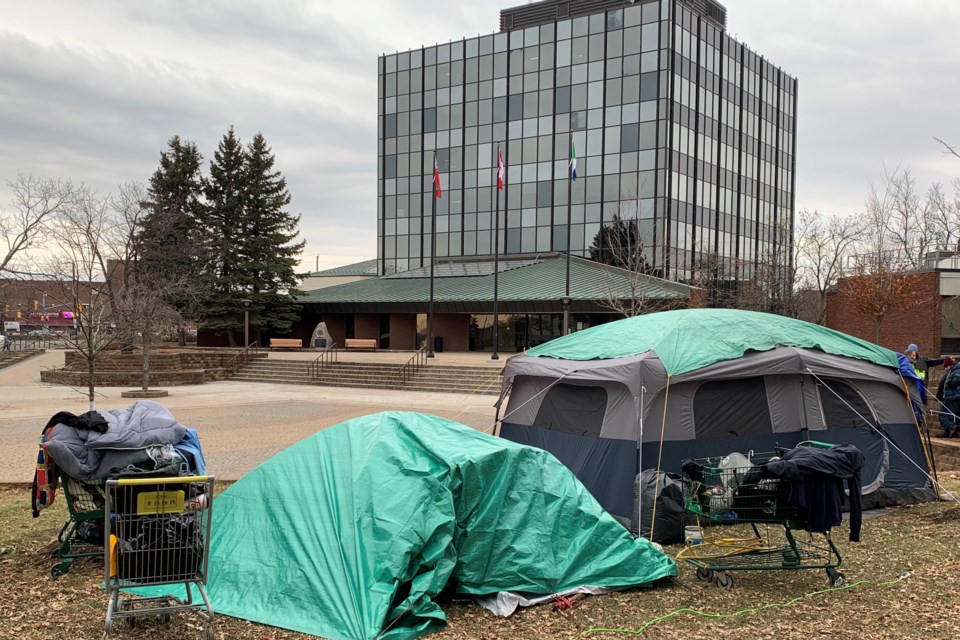I recently volunteered to work with community members to check in with people living unhoused in North Bay.
Over one day and one evening, we walked well over 20 kilometres, crisscrossing various neighbourhoods, and into the nooks and crannies that I’d previously passed without notice. Some people had decent setups and were dry, others were sitting in a soggy mess of clothing and blankets.
We delivered basic food, baked goods and soup. A successful delivery acknowledging the unspoken truth that we were there to ensure people were alive.
In all, we were able to connect and to feed about 40 people living rough right now. A tent city is being built – a common emergence in many communities during the pandemic: a response to the challenges inherent to shelter systems. These include an increased risk of COVID in congregate settings, the threat of violence not a result of any personal defect but because stress is high and the problems people face are complex: trauma, multiple losses, problematic substance use, and ongoing mental health among them.
Neighbours helping neighbours
During COVID, many communities, including here at home in Nipissing, have seen an upsurge in neighbours and organizations sharing resources. This is simultaneously heartwarming, and necessary, to meet the immediate, material needs of people in this moment. But it’s also alarming and a damning indictment of the status quo.
Decades of successive governments have cut and underfunded the public services that we all rely on, such as health and mental health care, long-term care, and education. We are seeing the consequences of these decisions with increased and unmanageable rates of opioid use and overdose deaths, crime, and homelessness, all of which are identified in North Bay’s Community Safety and Wellbeing Survey.
Cuts hurt communities
When the government makes cuts, we all lose. It leaves people to struggle on their own – people like those I met on our check-in.
The calamity of this struggle right now is deadly. Non-fatal and fatal overdose incidents are piling up. (Northern Ontario communities have among the highest rates in the province for overdose deaths.)
But most of us don’t learn about the humans behind the statistics. In many cases, we don’t even know their names. This, in turn, is having a devastating impact on all frontline helpers.
The health and well-being of those on the frontlines of duelling public health emergencies (COVID and an overdose crisis) are deeply invested in the outcomes of the people they serve.
They are all seeing exponential service demand with no end in sight. They have had people die from overdoses in their hands. This is no doubt traumatizing and a recipe for burnout, and requires immediate intervention now and comprehensive supports later to heal from stress they have endured.
Prioritizing safe housing
To prevent overdose deaths in our communities, we must make safe quality affordable housing a top priority. Housing plays an important part in building a healthy life, and is a critical component of stability for people living with the daily struggle of substance use.
The independent Financial Accountability Office of Ontario (FAO) recently stated that the provincial government’s housing strategy will not keep pace with demand. What we should be doing is building more affordable and supportive housing, redoubling our efforts to end chronic homelessness, and tackling the housing shortage in Northern Ontario.
I am more resolved than ever to fight for these things in our community after my eye-opening experience checking in on our unhoused neighbours. Because everyone deserves a good safe roof over their head.
Erika Lougheed
Editor's note: Ms Lougheed is a municipal councillor for East Ferris and the provincial NDP candidate for Nipissing
